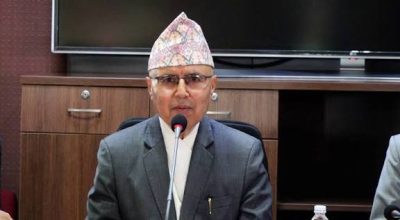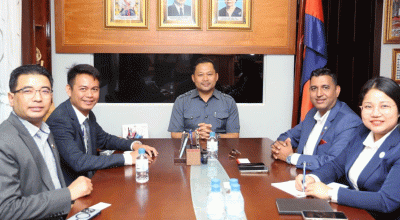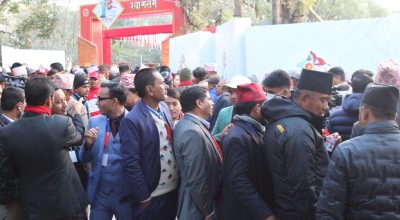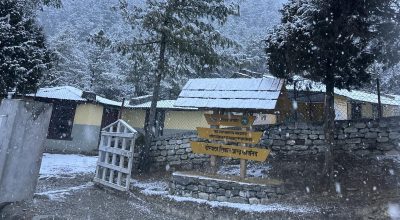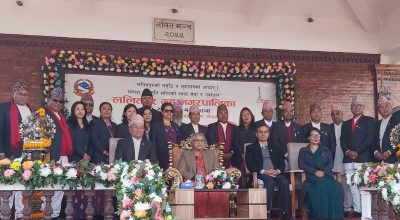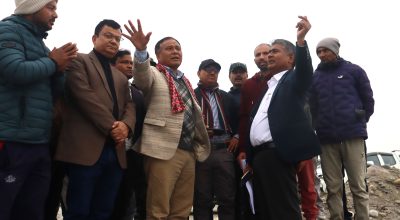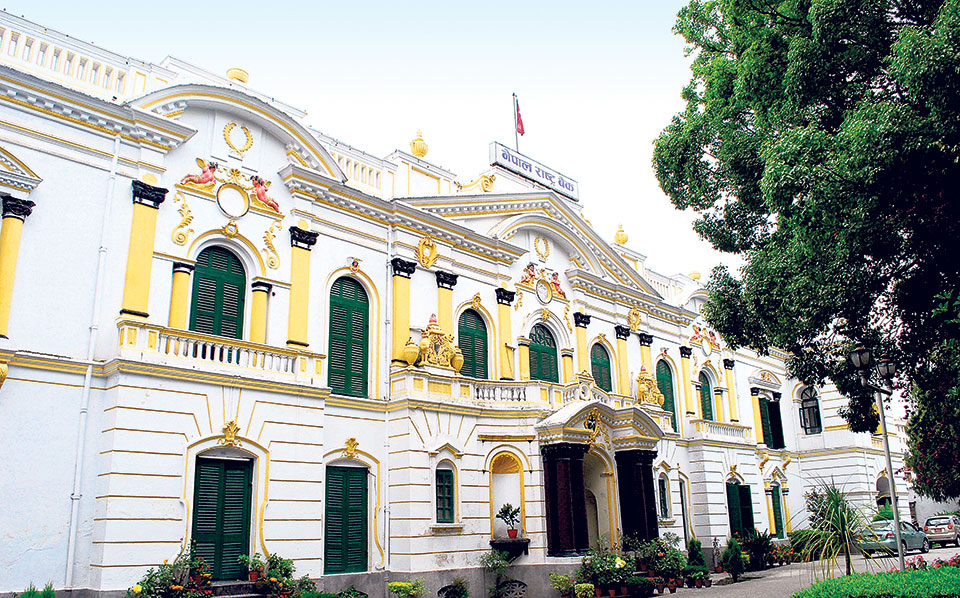
Kathmandu, Sept 10: A mutual evaluation report (MER) on anti-money laundering and counter-terrorist financing measures in Nepal has been released. The document was published on September 8.
The report was prepared and launched by the Asia/Pacific Group on Money Laundering (APG), an inter-governmental organisation consisting of 42 members in the Asia-Pacific region, as well as organisations, and observers from outside the region.
The document reviewed the status of implementation and enforcement of the internationally accepted 40 standards against money laundering, financing of terrorism and proliferation financing set by the Financial Action Task Force in the context of Nepal.
The report advised Nepal for high level commitment, greater resources, operational-level prioritisation, and cooperation to effectively combat its monetary laundering and terrorist financing risks.
It has assessed that competent authorities and the private sector have a varied and developing understanding of money laundering risks and a limited understanding of terrorist financing risk.
The Financial Intelligence Unit (FIU) within the Nepal Rastra Bank (NRB) is making significant efforts to enhance all FIU functions through the ongoing implementation of goAML (anti money laundering software solution), but financial institutions’ (FIs) STR reporting needs improvement and there is no reporting from Designated Non-financial Businesses and Professions (DNFBPs), according to the report.
It further adds while referrals to the Department of Money Laundering Investigation (DMLI), the sole money laundering investigative agency in Nepal, are not fully consistent with Nepal’s risk profile, it has investigated 58 money laundering cases with 45 prosecution cases and 32 natural persons convicted of money laundering. The vast majority of these convictions are self-laundering related to banking offences, which are rated high-risk in the 2020 NRA and are predicate crimes of focus in the National Strategy and Action Plan. ”However, Nepal has few money laundering investigations, prosecutions, and convictions for other high-risk predicate crimes.”
“Nepal completed its second National Risk Assessment (NRA) in 2020, and, overall, the National Coordination Committee (NCC) is overseeing Nepal’s national AML/CFT policies and implementation, which are focused on strengthening Nepal’s AML/CFT legislative frameworks and institutions, building the capacity of relevant competent authorities, and operational activities targeting Nepal’s highest threats and vulnerabilities. However, high level commitment, greater resources, operational-level prioritisation, and cooperation is needed for Nepal to effectively combat its ML and TF risks”, the report states.
It went on to say that though Nepal was pursuing some high-level confiscation-related policy objectives, it was yet to translate into institutional-level policies and procedures by Law Enforcement Agencies (LEAs), or confiscation results in line with Nepal’s risks as the value of recovered confiscation orders is low.
Nepal has ten successful non-conviction based confiscation cases related to money laundering. While Nepal has two TF cases, Nepal has a limited ability to identify potential terrorist financing in line with its risks mainly due to non-integration of TF into Nepal’s broader counter-terrorism strategies, lack of operational-level cooperation, and non-recognition of the financing of domestic political activities having the elements of terrorism as terrorist financing.
It may be noted that annual plenary of APG held in Vancouver of Canada from July 9 to 10 adopted the Nepal’s Manual Evaluation Report. The APG team had been in Nepal in last December to evaluate Nepal’s anti-money laundering and counter-terrorist financing measures in Nepal. Its follow-up report should be presented to the APG. The follow-up document will be circulated to the Global Network though the Financial Action Task Force and will be received with submissions.
The revised report will be unveiled in coming October and the government should present its action plan with commitments to address the issues pointed out by the report. During this period, the APF will grant an ‘observation period’ before coming into the direct surveillance of the ATF. During the observation time, Nepal is expected to implement the measures it recommended for.
The surveillance period will be of one year since coming October when the APG’s full report on the topic is expected to come. During the surveillance time, Nepal is mandated to undertake various policy-level reforms so that it should not be placed in the APG ‘gray list.’
Government proceeds towards amendment of various acts
The government some eight months ago registered the Bill to amend Some Nepal Acts relating to the prevention of money laundering and promotion of business environment profession. Through the Bill, the government aims to revise various 20 acts.
They are Export Import (Control Act), 2013 BS (1957), Ship Registration Act, 2027 (1971), Land Acquisition Act, 2034 (1977), Tourism Act 2035 (1978), Building Act, 2055 (1998), Insolvency Act 2063 (2006), Nepal Rastra Bank Act 2058 (2002), Human Trafficking and Transportation (Control) Act, 2064 (2007) and Offence related to Assets and Goods (Freezing and Confiscation) Act-2070.
Similarly, Nepal proposed to amend the Money Laundering Prevention Act, 2063 (2008), Mutual Legal Assistance Act, 2070 (2014), Prevention of the Organised Crime Act, 2069 (2013), Electricity Regulation Commission Act, 2074 (2017), Cooperatives Act, 2070 (2017), Foreign Investment and Technology Transfer Act, 2075 (2019), Insurance Act, 2079 (2022). The amendment to the Civil Penal Code-2017 has been proposed through the Bill.





